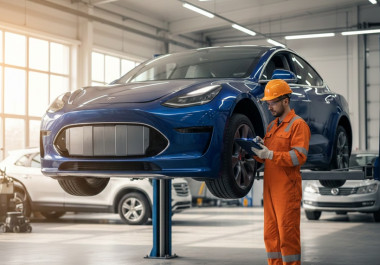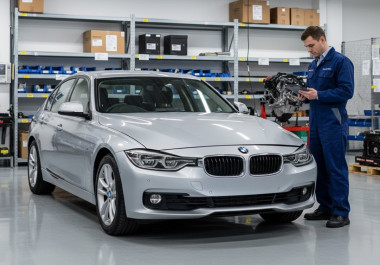Car auctions are some of the most exciting places to buy a vehicle. The air buzzes with energy, deals happen in seconds, and bargains sit side by side with prestige motors. But here is the truth I have learned over years in the trade: where there is money and excitement, there is always someone ready to pull a fast one. Car auction scams are not everywhere, but they exist, and if you are not careful, they can cost you dearly.
The good news is that with a sharp eye, some common sense, and a few insider tricks, you can spot most scams before they catch you. That is what we will cover here, the red flags to watch out for, the tactics scammers use, and the practical steps that show you exactly how to avoid auction scams.
Think of this as advice from an old mechanic over a brew. Straightforward, no jargon, and rooted in real auction floor experience.
Why Scammers Target Car Auctions
Auctions attract a mix of private buyers, dealers, and businesses. Some turn up once a year, others attend weekly. That variety is fertile ground for scammers. They rely on three things.
-
Speed. Cars pass under the hammer quickly, giving buyers little time to inspect.
-
Emotion. The thrill of competition makes people ignore warning signs.
-
Complexity. Not everyone understands paperwork, valuations, or histories.
Put those together and you have an environment where fraud can slip through if you are not careful.
Where Scams Usually Hide
Rather than list scams in isolation, let us look at where they most often creep in during the buying process.
The Vehicle’s Story
A car’s past is often the first thing scammers distort. That could mean:
-
Odometer rollback. Shaving years off its life to inflate the price.
-
Title washing. Hiding crash damage or write offs under clean paperwork.
-
Selective service records. Showing the good bits while leaving out the bad.
If the story feels too neat, dig deeper. Platforms such as RAW2K Online Vehicle Auctions make it harder for fraudsters because they provide transparent condition reports and histories.
The Seller’s Behaviour
Most auction houses vet their sellers. But on smaller or unregulated sites you will find:
-
Fake profiles created to lure in deposits.
-
Phantom auctions where no car exists at all.
-
Pressure tactics such as “pay today or lose the deal.”
Always check the seller’s record. If you cannot verify them, walk away.
The Listing Itself
Sometimes the scam is in the details or in the lack of them. Low quality photos, vague descriptions, or prices that seem too good to be true are classic signs.
At RAW2K, listings are detailed with multiple images and notes which helps filter out this kind of risk.
A Buyer’s Layered Defence Against Auction Scams
I like to think of auction safety in layers. Each one adds a little extra protection.
Layer 1: Preparation
-
Research market values so you know what is realistic.
-
Gather comparable examples for the type of vehicle you want.
-
Factor in auction fees, transport, and repairs.
Layer 2: Inspection
-
Cross check mileage with wear and service records.
-
Look for inconsistencies in paint, panel gaps, or documents.
-
If possible, get an independent inspection.
Layer 3: Platform Choice
Not all auctions are created equal. Stick with established sites. For example, explore current car auctions on RAW2K where transparent reporting and verified sellers reduce your risk.
Layer 4: Payment Discipline
-
Avoid sending deposits to unknown accounts.
-
Use secure methods.
-
Never rush into paying under pressure.
Regional and Vehicle Specific Risks
Scams often exploit what buyers expect in their local market or chosen vehicle type.
-
Scotland. Rust is common. Sellers may try to disguise corrosion with fresh underseal.
-
Wales. Vans often show suspension wear from hilly rural roads yet are described as “lightly used.”
-
North West. High mileage cars are common. Watch for rolled back odometers.
-
South East. Urban cars suffer clutch and brake wear. Scammers may gloss over these.
Vehicle specific risks:
-
Trucks. Maintenance records faked to cover costly brake or engine issues.
-
Motorcycles. Crash repairs patched cheaply.
-
Motorhomes. Damp and leaks hidden with cosmetic fixes.
Knowing the quirks of both region and vehicle gives you an edge.
Anecdotes from the Trade
I once saw a shiny hatchback at an auction in Leeds. The seller swore blind it had “low genuine mileage.” But the pedals were worn smooth and the steering wheel looked tired. Sure enough, the odometer had been rolled back. A newcomer might have been dazzled, but years in the trade taught me that clues are always there.
Another time, a van was listed with vague photos and described as “excellent for business use.” The inspection report however flagged accident repairs. The buyer who ignored that note ended up with constant wheel alignment problems. That van never drove straight again.
But it is not all cautionary tales. I once bought a motorbike with a fair pre sale estimate, scuffed bodywork, and little buyer interest. Because I trusted the transparent report, I snagged it for a song and enjoyed years of reliable use. Sometimes being cautious does not just save you. It helps you spot bargains others miss.
The Scam Red Flags Checklist
Here is a practical checklist for your next auction visit.
-
Mileage does not match wear.
-
Documents look altered or incomplete.
-
Price feels too good compared with market averages.
-
Seller dodges questions or pushes for quick deals.
-
Photos are blurry, inconsistent, or limited.
-
Auction terms are vague or full of hidden charges.
-
Payment requests go outside the platform.
-
Car’s condition report contradicts the listing.
-
Title history seems “too clean.”
-
Your instincts tell you something feels off.
What to Do If You Suspect Auction Fraud
Even with preparation, you might spot a scam mid auction. Here is what to do.
-
Pause. Do not let pressure push you into bidding.
-
Document. Save photos, listings, or conversations.
-
Raise it with the platform. If you are buying through RAW2K, you can get in touch with the RAW2K team here to flag suspicious listings.
-
Seek advice. An independent mechanic or trusted dealer can help.
-
Report if necessary. Escalate serious fraud to authorities.
Why Scam Awareness Protects Your Wallet
Buying at auction should be exciting, not stressful. By learning how to avoid auction scams, you give yourself the confidence to bid smart, protect your budget, and secure real value.
At RAW2K Online Vehicle Auctions, transparency, verified sellers, and full support mean you can focus on finding bargains without worrying about fraud. Whether you are exploring all cars currently listed, checking featured auctions, or planning your next bid, you know you are in safe hands.
Stay sharp, trust your instincts, and remember this. The best defence against scammers is knowledge. With the right preparation, every auction becomes a fair shot at driving away with a bargain.




